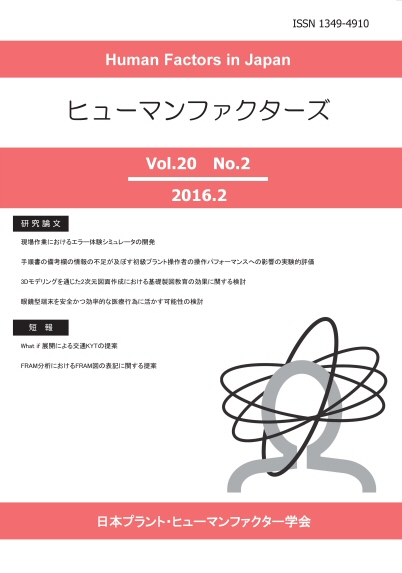Volume 20, Issue 2
Human Factors in Japan
Displaying 1-8 of 8 articles from this issue
- |<
- <
- 1
- >
- >|
Contents
-
2016 Volume 20 Issue 2 Pages 29
Published: 2016
Released on J-STAGE: April 25, 2016
Download PDF (391K)
Original Paper
-
2016 Volume 20 Issue 2 Pages 30-44
Published: 2016
Released on J-STAGE: April 25, 2016
Download PDF (2069K) -
2016 Volume 20 Issue 2 Pages 45-62
Published: 2016
Released on J-STAGE: April 25, 2016
Download PDF (2881K) -
2016 Volume 20 Issue 2 Pages 63-70
Published: 2016
Released on J-STAGE: April 25, 2016
Download PDF (906K) -
2016 Volume 20 Issue 2 Pages 71-78
Published: 2016
Released on J-STAGE: April 25, 2016
Download PDF (1253K)
Short Paper
-
2016 Volume 20 Issue 2 Pages 79-82
Published: 2016
Released on J-STAGE: April 25, 2016
Download PDF (676K) -
2016 Volume 20 Issue 2 Pages 83-87
Published: 2016
Released on J-STAGE: April 25, 2016
Download PDF (761K)
-
2016 Volume 20 Issue 2 Pages 88-
Published: 2016
Released on J-STAGE: April 25, 2016
Download PDF (931K)
- |<
- <
- 1
- >
- >|
